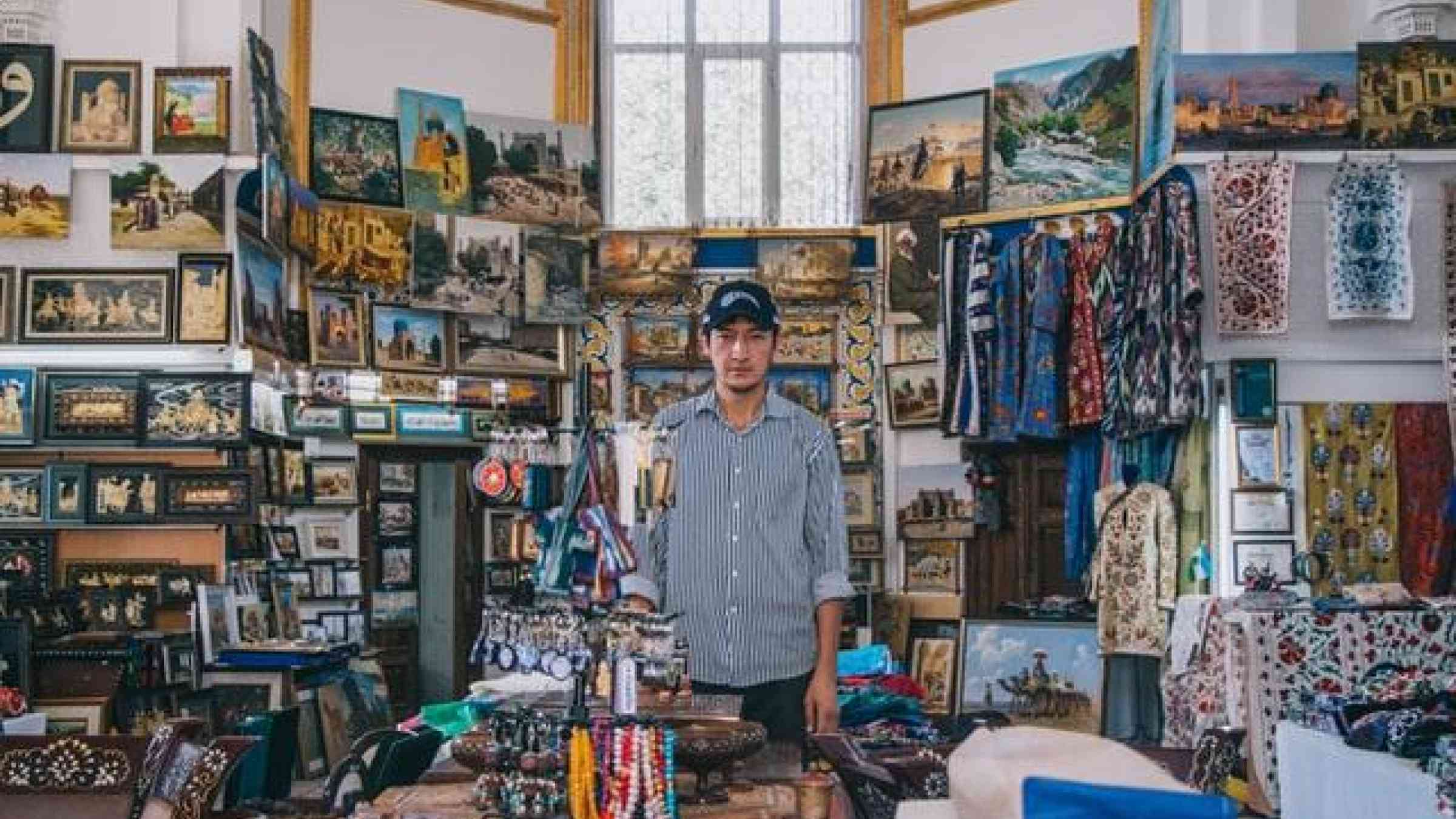Uzbekistan’s health care system, economy hit hard by COVID-19

Expanded social protections, services, may help, study finds
Tashkent — The COVID-19 pandemic and measures to contain it have hit Uzbekistan hard, cutting exports and remittances, straining government coffers, and forcing most small businesses across the Central Asian country to close, a new multilateral assessment finds.
The study represents a consolidated effort by UN agencies and international financial institutions, a Multilateral Socio-Economic Response and Recovery Offer, with UNDP as technical lead.
Exports dropped 18 percent in the first quarter, compared with the same period a year earlier, the Government reports, while 475,000 or 85 per cent of the country’s small businesses were forced to close in March. The share of households with at least one member actively working fell more than 40 percentage points, from 85 to 43 per cent, between March and April. Among self-employed people, income fell 67 per cent, according to the World Bank’s Listening to the Citizens of Uzbekistan (L2CU) survey.
The crisis has taken a high toll on women, the study finds. Demand for hotline support in response to gender-based violence increased fivefold in the country’s first week under lockdown. Frontline health workers, 82 per cent of whom are female, meanwhile face extreme pressure: In a recent UNFPA-supported survey, half of female healthcare workers reported suffering from anxiety, burn-out, and depression.
Some 1.3 per cent of the population—about 448,000 people—may have already fallen into poverty as a result of the crisis, the LSCU survey finds. Remittances—a vital income source for many of the poorest households, accounting for 15 per cent of GDP—are meanwhile projected to plunge by more than 50 per cent, significantly worsening hardship for the poorest households.
Socially and economically marginalized groups including people with disabilities, returning migrants, people living with HIV, and drug users are experiencing the impact of lockdown measures most acutely, with great difficulty accessing medications and services, the multilateral study finds.
GDP growth is now projected to fall 1.6 percent in 2020, down from 5.7 per cent forecast in February. At the same time, a surge in government spending on medical supplies, compensation for frontline workers, and expanded social safety nets have coincided with seasonally low tax collections, expanding the budget deficit to 4.7 per cent of GDP.
Among measures to mitigate the crisis, the multilateral study recommends:
· Increasing low-income family allowances, unemployment benefits, wage subsidies, and social protections.
· Developing protocols, including remote case management, to ensure continuity of vital services for the most vulnerable people.
· Supporting Uzbek migrant workers stranded in Russia and Kazakhstan.
· Enhancing public oversight, transparency, and human rights protections to safeguard vulnerable groups.
· Promoting and expanding affordable Internet connectivity.
UNDP in Uzbekistan is amplifying and disseminating science-based communications about the pandemic and services available to mitigate and contain it—including outreach to sight- and hearing-impaired people. UNDP has also initiated a rapid community response and early recovery package, targeting the most vulnerable groups. This includes helping communities devise recovery plans, providing basic services and access to finance, and facilitating digital solutions to ensure continuity of business and services.
UNDP has also equipped and trained 2,000 community health volunteers to share information in 10 districts in the northwestern autonomous region of Karakalpakstan, procured personal protective equipment (PPE) and disinfectants for more than 30,000 people in remote regions, supplied 200 infrared thermometers to the Agency for Public Services, helped plan 10 new wells for clean drinking water, and provided disinfectants to five regions in Karakalpakstan.
Another project will produce some 20,000 face masks to be distributed there at no charge, while UNDP has also helped launched a Business Clinic Programme nationwide that provides free legal and business advisory services to small and medium businesses (SMEs) affected by COVID-19 and distance learning initiative on entrepreneurship in four Karakalpakstan districts. Online skills development courses are helping meet the needs of workers who lost jobs under the lockdown.
UNDP has separately launched a project aimed at ensuring safe disposal of PPE in Uzbekistan. This includes installing disposal containers at 32 large grocery stores and 150 collection stations in the most densely populated areas of the capital, Tashkent, and producing and disseminating public information on best practices to halt the spread of COVID-19.